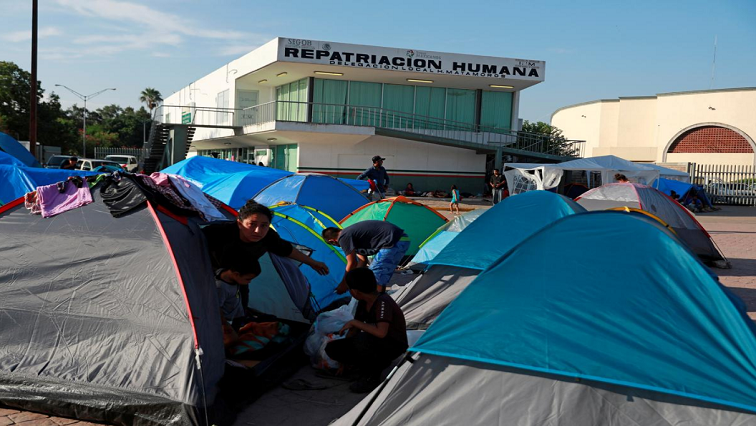Even after he was kidnapped and robbed outside the makeshift migrant camp where he had slept for two weeks, Luis Osorto decided his only chance for eventual asylum in the United States was to stay put along the border just inside Mexico.
But the 37-year-old Honduran made a pact with himself: not to leave the enclave of tents at the end of a bridge between Matamoros and Brownsville, Texas, not even to buy a bottle of water or to collect money transfers from his family back home.
The cramped camp, in a partly fenced-in plaza abutting administrative buildings just feet from the Rio Grande, is home to approximately 1 000 migrants, many of them sent back to Mexico to await US immigration hearings under a policy called the Migrant Protection Protocols (MPP) that begun in 2019.
After what is commonly known as an “express kidnapping” in September by men waiting in a van for him outside a convenience store where he was collecting a $100 transfer from relatives, Osorto promised himself he would only leave the camp to cross the bridge to Texas for his December court date with US immigration authorities.
“I just wait here and trust someone else to get me 70 pesos ($3.50) or so when I need it,” he said.
MPP, sometimes called Remain in Mexico, is among various overlapping US policies aimed at severely reducing asylum claims.
President Donald Trump, whose hard-line stance on immigration was a mainstay of his 2016 campaign, has said lax US asylum laws encourage people to show up at the border with their children.
Before MPP, it was common practice to release arriving families into the US to wait out their US court hearings, something Trump and others said allowed many migrants to disappear into the country to live illegally.
Studies by legal aid groups, such as the Urban Justice Centre, have shown that most asylum seekers show up for their hearings, however.
More than 51 000 people, mainly from Central America, have been sent to Mexico since the MPP program started in January, according to US Customs and Border Protection.
But reports of kidnapping and extortion have increased since the programme was expanded to Matamoros and nearby Nuevo Laredo in crime-wracked Tamaulipas state.
Human Rights First, a US-based rights group, in August, documented 110 publicly reported cases of rape, kidnapping, sexual exploitation and other violence against MPP returnees.
In Matamoros, violence and abuse targeting migrants mean many in the MPP programme refuse to move to a shelter in the city during their long waits for a US court hearing.
Since July, Matamoros has received more than 12 000 asylum seekers under MPP, said Enrique Maciel, of the Tamaulipas Institute for Migrants, a state agency.
Matamoros Mayor Mario Lopez described the city as calmer than neighbouring towns because of a truce between two rival drug cartels. Elsewhere in the state, gangs regularly fight pitched battles for turf.
Reuters spoke to six asylum seekers at Osorto’s camp who said they had been kidnapped or extorted, and several more who had brushes with suspected criminals near the border or elsewhere within Mexico.
Oscar Ramirez, a 30-year-old Honduran waiting for a US court date on 2 December, said three Mexican men surrounded him around midnight in September, and began interrogating him on his plans and his paperwork, he said.
“I was terrified,” said Ramirez, who said he ran away from the men when a crowd of people arrived. “The rumours circulating are that at any moment unknown people will kidnap you.”
Reuters was unable to independently corroborate the migrants’ stories. Osorto said he did not report the attack on him to police.
Kristin Clarens, a US attorney who advises asylum-seekers at the border, said she had come across five cases of migrants in Matamoros awaiting MPP hearings who were kidnapped briefly. They were taken to an ATM to clear out their accounts or forced to phone relatives to send cash transfers to a nearby convenience store.
A spokesperson for Mexico’s National Institute for Migration said it had no data on such complaints. Mexico’s national rights ombudsman said it was checking for data.
The Tamaulipas state Attorney General’s Office and the federal Attorney General’s Office declined to comment. The US Department of Homeland Security did not respond to requests for comment about the dangers in Tamaulipas.






